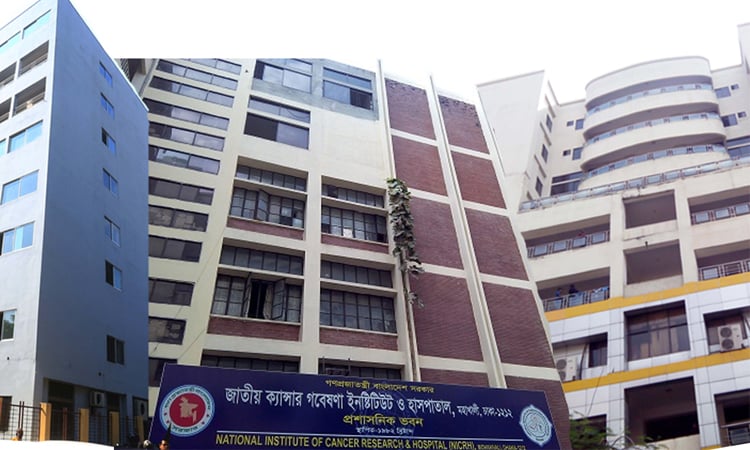News Flash
News Flash

By Kabir Ahmed Khan
DHAKA, Nov 17, 2025 (BSS) - Bangladesh needs at least 180 linear accelerator machines for the radiation therapy of cancer patients, while only 24 machines are currently available across the country - an extremely insufficient number.
Every year, 200,000 to 300,000 new cancer patients are diagnosed in the country, and the total number of cancer patients is nearly 15 lakh.
These observations were made by Professor Dr. Md. Jahangir Kabir, Director (in-charge) of the National Institute of Cancer Research and Hospital (NICRH).
In an exclusive interview with Bangladesh Sangbad Sangstha (BSS) recently, he highlighted various issues including cancer treatment, management, medicine supply, and future plans.
According to him, the government must place strong emphasis on ensuring the basic needs of education and healthcare. Sustainable development is not possible without building a healthy population. He believes that budget allocations must be increased for developing skilled doctors, nurses, and supporting staff for cancer surgery, radiation, and chemotherapy.
Replying to a question, he said, "The number of cancer patients is increasing rapidly. Therefore, both specialists and advanced equipment are essential for treatment. On average, the hospital's outpatient department treats around 1,000 patients a day. Around 300 patients receive day-care services. But although the hospital is a 500-bed facility, it has manpower allocated for only 300 beds."
Discussing the manpower shortage, he said that although 500 beds have been operational since 2021, the required staff has not been appointed.
A proposal for additional staff has already been submitted to the Ministry of Health, which has been approved by the Ministry of Health and the Ministry of Public Administration, and is now awaiting approval from the Ministry of Finance, he said adding the proposal includes recruitment of 319 new personnel, including doctors, nurses, and staff.
Explaining the three stages of cancer treatment - surgery, radiation, and chemotherapy - Prof Jahangir said there is a shortage of modern equipment for radiation therapy.
The NICRH has two radiation machines, while Bangladesh Medical University (BMU) has one, CMH has one, and Savar Nuclear Medicine has one, he said.
"Currently, Bangladesh has around 70 cancer surgeons. There are approximately 300 radiation and chemotherapy specialists - far below the required number," he said.
Prof Jahangir said at least 300 surgeons and 800-900 radiation and chemotherapy doctors are necessary.
The hospital does not have MRI or mammogram machines, he said adding the process of procuring two new radiation machines is underway, and efforts are being made to acquire another one.
Due to the lack of machines, patients have to wait more than eight months for radiation, and one to one-and-a-half months for surgery, said the director.
Noting that the hospital's budget for the current fiscal year is around Tk 270 crore, he said additional funds have also been allocated for purchasing machines.
However, he believes that an allocation of Tk 400 crore would significantly improve treatment facilities. Every day, 200-300 patients receive day-care services, and some medicines are provided free of cost, he said.
He said that if the budget increases, more medicines could be provided free of charge. "The outpatient department sees around 1,000 patients daily. Treatment is provided in three buildings and four blocks at the hospital," he said.
Noting that the hospital campus is relatively small, he said at least 10 cancer hospitals are needed nationwide to meet the growing demand.
When asked why many cancer patients seek treatment abroad, especially in India, the director said that a sense of inferiority among people is partly responsible. Additionally, doctors must improve their behavior toward patients, he said adding the media can also play an important role.
He added that the government should carefully consider the approval process for public servants seeking medical treatment abroad.
He noted that people have high expectations from the new government. "Ensuring education, health, and medical care is the government's responsibility. The education sector is still neglected in many areas. Proper healthcare facilities are essential, as a lack of good health reduces productivity," he said adding therefore, the government must prioritize the education and health sectors.
He mentioned that the government has plans to provide cancer treatment through cancer, kidney, and cardiac units at eight divisional hospitals, apart from the cancer institute.